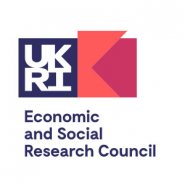
Data and algorithms to measure and prevent Gender Based Violence in the UK: an inward-placement of Data Pop Alliance at the University of Surrey
Start date
January 2023End date
March 2023Overview
Gender-based Violence (GBV), any violent act, attempt, or threat that affects persons of a particular gender disproportionately, is one of the most pervasive forms of human rights violations affecting an estimated 30% of women worldwide. Public policy decisions taken on the basis of these data are biased and may not be properly resourced to meet demand for program design and impact evaluation of prevention and treatment services.
This ESRC IAA funded project aims to foster collaborations and knowledge exchange between the external partner and experts at the University of Surrey, to develop a novel data-driven framework to identify and analyse the causes of GBV.
The goal is to produce a toolkit for policy makers and advocates to mitigate GBV in the UK and worldwide and highlight the importance of understanding the multiple factors that enable (or hinder) reporting and thus prevention and response to GBV, by generating a novel comprehensive, and holistic data-driven framework to identify and analyse its underlying causes.
Team

Dr Carla Bonina
Associate Professor (Reader) in Entrepreneurship and Innovation
Biography
Carla Bonina is a globally recognized expert at the intersection of technology, entrepreneurship, and policy, focused on driving impactful change for sustainable development. As a social scientist and author, she leverages her research to empower leaders in the tech industry and public sector to harness digital innovation, platforms, and responsible AI for transformative outcomes.
Her work has informed international organizations, governments, and donors—including the World Bank, the OECD, the IDRC, Avinas Americas and others—on strategic issues such as digital transformation, open data, and the sustainability of the digital economy. Renowned for her expertise in Latin America, Carla is a thought leader in using digital technology for social impact.
Carla’s research, funded by prestigious bodies like the EU’s Horizon 2020, ESRC, and EPSRC, translates cutting-edge insights into actionable solutions. She has been recognized with numerous accolades, including Mid-Career Researcher of the Year at Surrey Business School (2021) and the Impact Award (2020) for her outstanding contributions to digital government transformation in Latin America. In 2025, she was named one of the 100 Brilliant Women in AI Ethics for ensuring that benefits from people-centred AI are distributed equitably.
As a founding member of the Surrey Center of Digital Economy, Fellow at the Surrey Institute for People Centred AI and Principal Researcher at the Latin American Open Data Initiative (ILDA), Carla is at the forefront of driving responsible AI adoption and digital innovation. She also contributes to the Center for Social Innovation Management, the Surrey Law and Technology Hub, and the global Sandbox network of young entrepreneurs.
Carla holds a PhD in Management from the London School of Economics, an MSc in Public Administration and Public Policy from CIDE, and a BA in Economics from the University of Buenos Aires. Passionate about social entrepreneurship, Carla thrives on turning research into insights that enable impactful change for a more sustainable digital future.
Outputs
Short-term outcomes include:
- Workshop to connect relevant actors and learn about the state of art of gender-based violence data in the UK and engage with interested actors on our mission to create a data-driven framework against GBV (28 March 2023)
- Materials: draft of a holistic data-driven framework for comments and feedback during the in-ward placement
Longer term outcomes and future plans
- Dissemination/Mobilisation Activities: after the placement we plan the development and dissemination of the holistic data-driven framework for GBV underreporting (published in English), open thematic discussions through Eureka.
- Preparation of bids to escalate the project: The aim is to use the ESRC IAA project funding to form a bidding team that can later apply to £500K+ grants jointly.
Impact
The overall goal is to ensure the approach and insights from this project can be leveraged in the UK.
Globally, there is a reliance on models and techniques generated in North America and Western Europe and these models are often transplanted to the Global South, in many cases by researchers that do not understand the local context. This work will demonstrate how models and modelling capacity can be developed with a Global South perspective that will enrich the local UK context.
The reach and significance of the entire project going forward has the potential to be unique, tapping into developed and developing countries, and strengthening policy and practice. By leveraging a novel framework to collect and analyse GBV data, future use of data and algorithms will prevent the biases of administrative records combining elements of qualitative research and machine learning (ML).
The team expects the resulting framework to offer opportunities for scaling GBV research, as well as the formulation of inclusive development policies and for the decolonization of data tools and methods for low- and middle-income countries.

